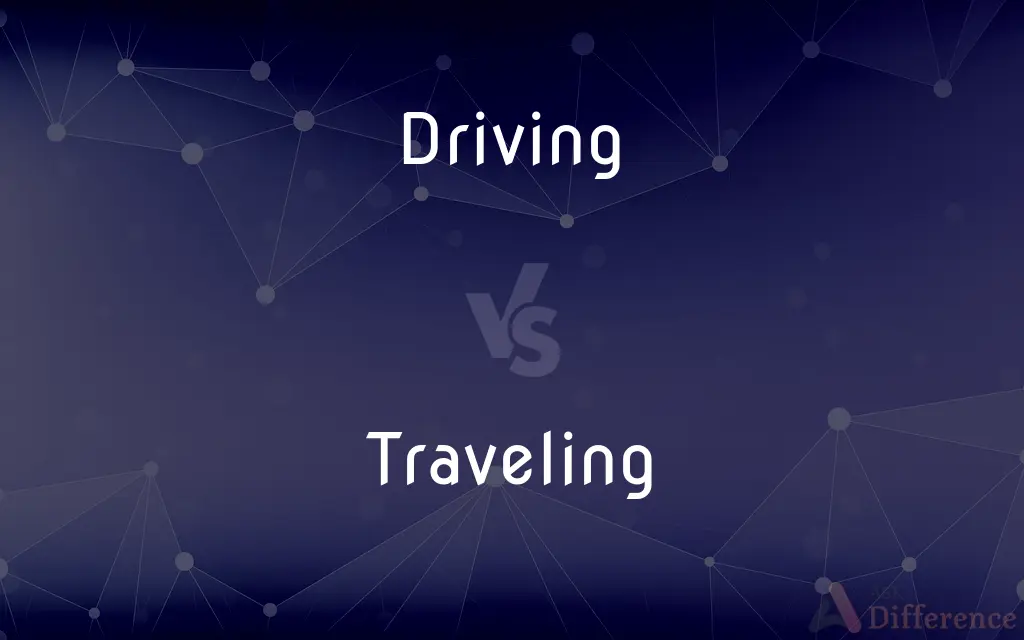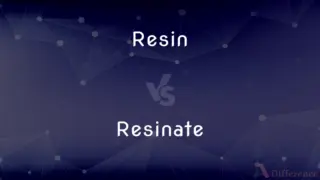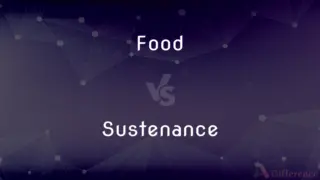Driving vs. Traveling — What's the Difference?
By Fiza Rafique & Urooj Arif — Updated on March 11, 2024
Driving focuses on controlling a vehicle, often for shorter, more routine journeys, while traveling is broader, encompassing all modes of journeying, typically for leisure, exploration, or long distances.

Difference Between Driving and Traveling
Table of Contents
ADVERTISEMENT
Key Differences
Driving is an activity that specifically involves operating a motor vehicle, such as a car, truck, or motorcycle, often used for commuting or running errands. It requires a certain skill set, including knowledge of traffic laws and vehicle control. On the other hand, traveling is a more inclusive term that refers to moving from one place to another, which can include driving but also encompasses walking, cycling, flying, sailing, and using public transportation. Traveling is often associated with exploring new places, whether for leisure, work, or other purposes, and can vary greatly in duration, from short trips to extended journeys.
Driving usually demands the driver's constant attention and interaction with the vehicle and road, focusing on aspects like speed, navigation, and adherence to traffic rules. Whereas traveling, especially in forms other than driving, might offer opportunities for relaxation, sightseeing, or engaging in other activities, such as reading or sleeping on a plane or train.
Another difference lies in the purpose and experience of each activity. Driving is often utilitarian, aimed at reaching a destination within a local or familiar area. In contrast, traveling tends to be more about the experience, exploring new destinations, cultures, and landscapes, often with a sense of adventure or leisure.
The environmental impact of these activities can also vary. Driving, particularly in gasoline-powered vehicles, is a significant source of carbon emissions and environmental degradation. Traveling, depending on the mode, can either exacerbate this impact, as in the case of air travel, or reduce it, as with eco-friendly travel options like cycling or using public transit.
Safety considerations differ between driving and traveling. Driving involves inherent risks such as accidents, which require drivers to be vigilant and well-versed in road safety practices. Traveling, depending on the mode and destination, may present its own set of safety challenges, from aviation safety to navigating unfamiliar environments, but these are often managed by professionals in the case of public transportation or travel companies.
ADVERTISEMENT
Comparison Chart
Definition
Operating a motor vehicle
Moving from one place to another by any means
Purpose
Typically utilitarian, for commuting or errands
Exploration, leisure, or work, with a focus on the experience
Skill Required
Knowledge of vehicle operation and traffic laws
Varies by mode of travel, from none to specific skills like sailing or flying
Duration and Distance
Often shorter and within familiar locales
Can range from short trips to extensive journeys across unfamiliar territories
Environmental Impact
Higher, especially with gas-powered vehicles
Varies, from high with air travel to low with eco-friendly modes
Compare with Definitions
Driving
A means of controlling a vehicle to move from one location to another.
She enjoys driving through the countryside on weekends.
Traveling
The act of going from one place to another, which can include various modes of transportation.
Traveling by train through Europe is a scenic experience.
Driving
Often used for daily commutes or short-distance travel.
Driving to work takes about thirty minutes each morning.
Traveling
Often associated with leisure, tourism, or exploring new cultures.
They love traveling to new countries to learn about different cultures.
Driving
The act of maneuvering a car on roads, following traffic rules.
Driving in the city during rush hour can be stressful.
Traveling
Focuses on the experience of the journey and the destination.
Traveling has broadened their understanding of the world.
Driving
Requires a license and understanding of road safety.
He started driving lessons to get his license next month.
Traveling
Can be for business, such as trips or meetings in different locations.
His job involves traveling to different cities for client meetings.
Driving
Can be a hobby or recreational activity for some.
They took up off-road driving as a weekend adventure.
Traveling
Encompasses short trips, long vacations, or extended journeys.
Their traveling plans include a three-month backpacking trip across Asia.
Driving
Driving is the controlled operation and movement of a vehicle, including cars, motorcycles, trucks, buses, and bicycles. Permission to drive on public highways is granted based on a set of conditions being met and drivers are required to follow the established road and traffic laws in the location they are driving.
Traveling
To go from one place to another, as on a trip; journey.
Driving
Transmitting power or motion.
Traveling
To go from place to place as a salesperson or agent.
Driving
Violent, intense, or forceful
A driving rain.
Traveling
To be transmitted, as light or sound
The speed at which sound travels through water.
Driving
Energetic or active
A driving personality.
Traveling
To move along a course, as a phonograph needle in the groove of a record.
Driving
Present participle of drive
Traveling
(Informal) To move swiftly
This car can really travel.
Driving
That drives (a mechanism or process).
Traveling
To go about in the company of a particular group; associate
Travels in wealthy circles.
Driving
That drives forcefully; strong; forceful; violent
Traveling
To admit of being transported without loss of quality; Some wines travel poorly.
Driving
The action of the verb to drive in any sense.
Traveling
(Basketball) To move illegally while holding the ball, usually by taking more than two steps between dribbles or by moving a foot that has been established as a pivot.
Driving
In particular, the action of operating a motor vehicle.
Traveling
To pass or journey over or through; traverse
Travel the roads of Europe.
Driving
(golf) The act of driving the ball; hitting the ball a long distance, especially from the tee to the putting green.
Traveling
The act or process of traveling from one place to another
With the railroad, travel between cities became swift.
Driving
Having great force of impulse; as, a driving wind or storm.
Traveling
A series of journeys
Her travels in Africa.
Driving
Communicating force; impelling; as, a driving shaft.
Traveling
An account of one's journeys.
Driving
The act of forcing or urging something along; the act of pressing or moving on furiously.
Traveling
The activity or business of arranging trips or providing services for travelers
She works in travel.
Driving
Tendency; drift.
Traveling
Movement or passage
The travel of the planets around the sun.
Driving
Hitting a golf ball off of a tee with a driver;
He sliced his drive out of bounds
Traveling
The motion of a piece of machinery, especially of a reciprocating part; stroke.
Driving
The act of controlling and steering the movement of a vehicle or animal
Traveling
The length of a mechanical stroke.
Driving
Having the power of driving or impelling;
A driving personal ambition
The driving force was his innate enthusiasm
An impulsive force
Traveling
Present participle of travel
Driving
Acting with vigor;
Responsibility turned the spoiled playboy into a driving young executive
Traveling
(basketball) A violation committed by progressing while holding the ball instead of dribbling it.
Traveling
The action of the verb travel.
Traveling
That travels (with one).
A traveling companion
Traveling
The act of going from one place to another;
He enjoyed selling but he hated the travel
Traveling
Working for a short time in different places;
Itinerant laborers
A road show
Traveling salesman
Touring company
Common Curiosities
What is the primary purpose of driving?
The primary purpose of driving is to operate a motor vehicle to reach a specific destination, often for practical reasons like commuting or running errands.
Can driving be considered a form of traveling?
Yes, driving can be considered a form of traveling when it involves moving from one place to another, though it is specifically related to the use of motor vehicles.
Is a driver's license required for all forms of traveling?
No, a driver's license is only required for driving motor vehicles, not for other forms of traveling such as walking, cycling, or using public transport.
How does the duration of driving trips usually compare to traveling?
Driving trips are often shorter and within familiar areas, whereas traveling can include both short trips and longer journeys to distant or unfamiliar destinations.
What skills are needed for driving?
Driving requires skills in vehicle operation, understanding of traffic laws, and road safety practices.
What makes traveling different from driving?
Traveling encompasses a broader range of activities beyond just operating a vehicle, including various modes of transport and the experience of exploring new places.
Do all forms of traveling require special skills?
The skills required for traveling vary by mode; some forms, like flying or sailing, require specific skills, while others, like walking, require none.
Are there environmental concerns associated with driving?
Yes, driving, especially in gasoline-powered vehicles, contributes to carbon emissions and environmental degradation.
Can traveling be done without causing environmental harm?
Yes, traveling can be more environmentally friendly through choices like cycling, walking, or using public transportation and eco-friendly travel options.
How does the safety aspect differ between driving and traveling?
Driving involves risks like accidents and requires personal vigilance, while traveling safety varies by mode and is often managed by professionals in public transportation or travel companies.
How do the experiences of driving and traveling differ?
The experience of driving is often focused on the act of operating a vehicle and navigating, while traveling offers a broader range of experiences, from exploring new cultures to leisure and adventure.
Can driving be a leisure activity?
Yes, driving can also be a hobby or recreational activity, such as scenic drives or off-road adventures.
Is traveling always related to leisure and exploration?
While often associated with leisure and exploration, traveling can also include business trips, commuting, and other practical purposes.
How does the purpose of driving compare to traveling for work?
Driving for work involves specific destinations and tasks, like commuting or errands, while traveling for work may include meetings, conferences, or business-related trips in various locations.
Can driving be part of a larger travel experience?
Yes, driving can be part of a larger travel experience, such as road trips that involve exploring new areas and destinations.
Share Your Discovery

Previous Comparison
Resin vs. Resinate
Next Comparison
Food vs. SustenanceAuthor Spotlight
Written by
Fiza RafiqueFiza Rafique is a skilled content writer at AskDifference.com, where she meticulously refines and enhances written pieces. Drawing from her vast editorial expertise, Fiza ensures clarity, accuracy, and precision in every article. Passionate about language, she continually seeks to elevate the quality of content for readers worldwide.
Co-written by
Urooj ArifUrooj is a skilled content writer at Ask Difference, known for her exceptional ability to simplify complex topics into engaging and informative content. With a passion for research and a flair for clear, concise writing, she consistently delivers articles that resonate with our diverse audience.














































